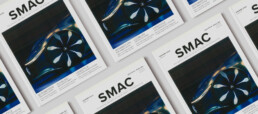It’s remarkable how a few international designers, with their collections presented on the catwalks of Paris, Milan and New York, dictate what will be worn next season. A glance at the Instagram pages of luxury watch and car manufacturers triggers longing and fascination. Luxury objects have long been admired for their precision: for the almost loving care with which, for example, a dress is handmade by Oscar de la Renta and embroidered pearl by pearl. The character of uniqueness resonates with every step in such a gown, just as it does with every ride in a Bugatti or with every look at a Patek Philippe on the wrist. Once experienced, it is a feeling that one does not want to give up. Both the quality of the product, as well as the promise that is transferred to the owner, are addictive. When you own a luxury product, your own status increases - and with good reason.

We need to know the source to understand its consequences
The origin of the word luxury comes from Latin, meaning ‘waste’, and was originally used to describe objects not required for everyday use and that were once widely considered useless or unnecessary. Those who could afford to do so purchased them to flaunt their wealth. But how does this scenario play out in an affluent society? We are already surrounded by the unnecessary on a daily basis, while developments such as digitalization are completely changing our consumer behavior. In this context, something as traditional as the luxury industry can quickly lose its magic. Indeed, luxury emerges from the magic of coding, whereas ‘online’ stands for its transparency; luxury is exclusive and excludes, while online is inherently inclusive; the power of luxury stems from its scarcity, yet online creates added value through constant availability. When the status of luxury is suddenly democratized, the entire industry finds itself at a turning point.
The end of senseless consumption
In a time when sustainability and resource conservation are omnipresent, unnecessary consumption (luxury) is almost frowned upon. Can you really afford to sit on one of the nearly 20,000 private flights that land in the Bahamas every year? Does your overcrowded wardrobe need to be regularly updated with the latest couture clothes? And how do we feel about celebrating the excessive consumption of experiences, such as visiting all the European capitals in short trips? Whether you are really enriched by the ‘products’ or rather by the idea of sharing these experiences with your friends is probably questionable. The loud and the unnecessary are losing their charm. But how does status redefine itself in a world without obvious status values?
Knowledge replaces status
In the search for values, materialism has become uninteresting. The understanding of luxury is developing away from its status utility and evolving into connoisseurship. Ultimately, the depth of knowledge about a product defines our level of enjoyment. A perfect example of this are the menus in Michelin Star restaurants that mention the local farmer by name, that enrich our vocabulary with the names of unfamiliar mushroom species, and that even include a nod to the dairy cow who supplied the basic ingredient for dessert. All of these are ways to give (even more) meaning to the product. Suddenly, luxury is no longer defined by the many, but by substance, as the paradigm shifts from the externally visible to the personally valuable.
The age of the connoisseur
This has also become evident in the renewed appreciation for craftsmanship: the interest in handmade shoes, refurbished vintage furniture, and even home-roasted coffee. The end of unnecessary consumption is leading to a new demand for premium quality in the select few goods and products that one allows oneself. This approach goes far beyond clothing, encompassing connoisseurship in areas of intuitive interest, from vintage cars to wines. I don't need a large, flashy collection of Bordeaux if my passion and interest lie in elegant, silky Pinot Noirs. The phase-out model of luxury finds itself in a new level of sophistication and clarity for its own (often immaterial) pleasure and composure. A derivative of this is good conversation with like-minded people, where the emphasis is not on showing off, but on depth.

Share

